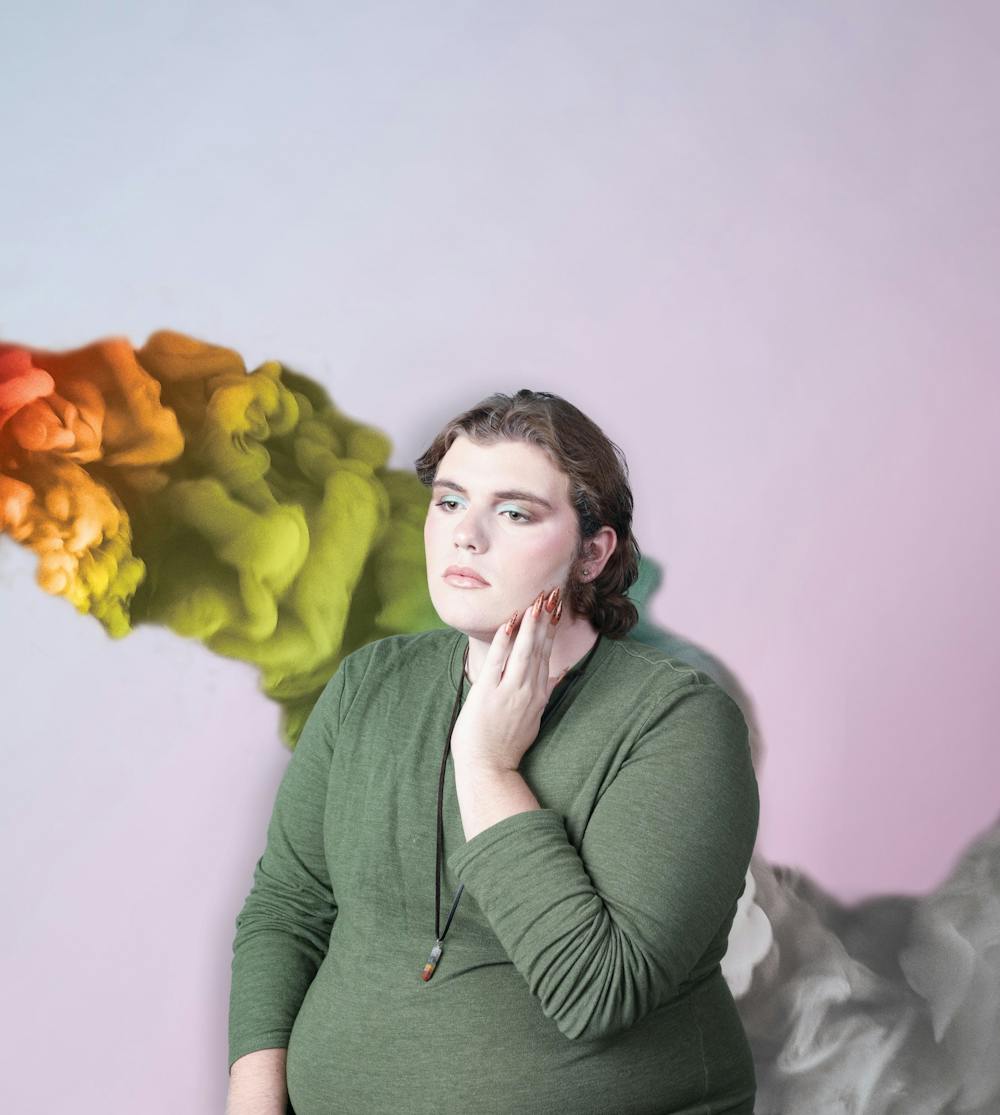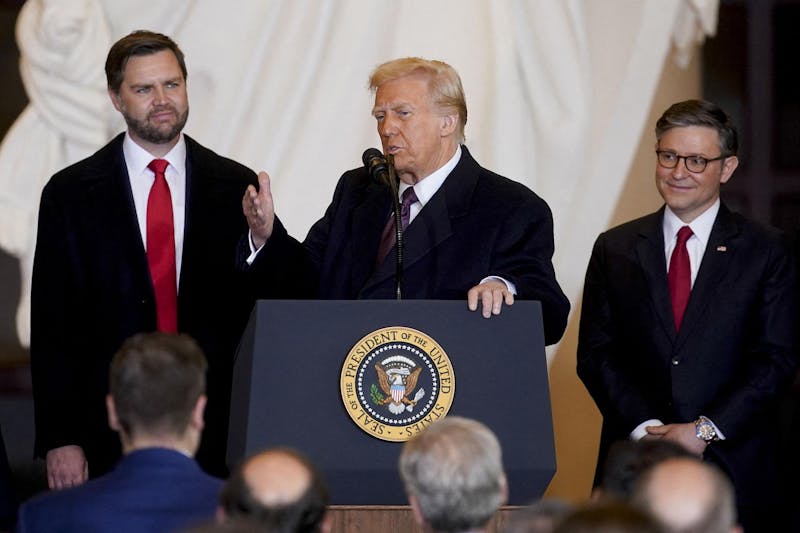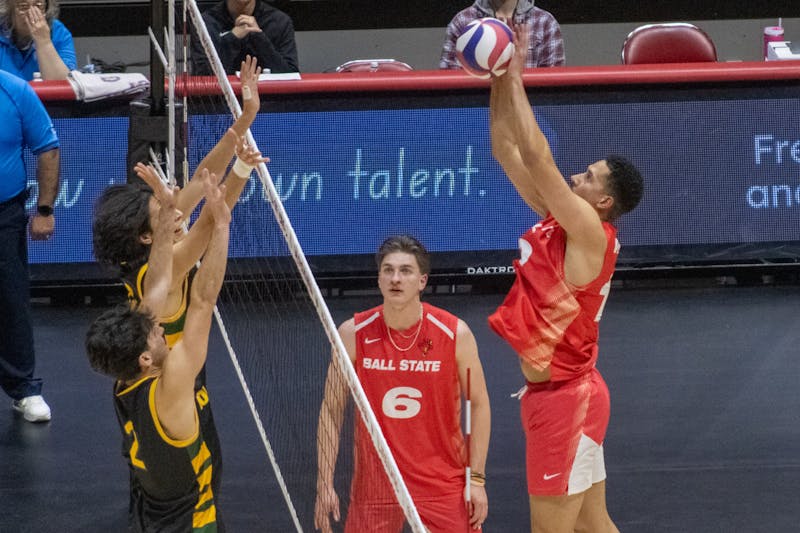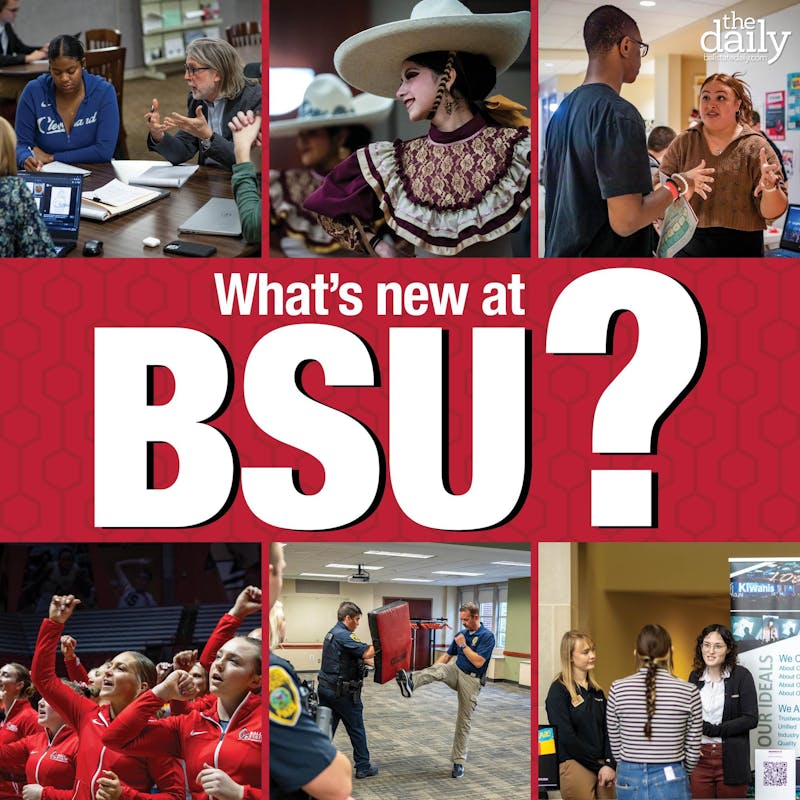Evan Chandler is a fourth-year journalism and Spanish major and writes XXXX for The Daily News. Their views do not necessarily reflect those of the newspaper.
I am no stranger to being an outsider.
As a young child, I often found myself removed from the traditional social circles. I had no successful friendships with boys my age at school, I sat away from all the popular people on the bus and I even failed to escape the feeling within my own home. I was a walking target for my older brothers' insults — a big, red bullseye, anticipating the next dart that would come my way.
The word “gay” chased me like it was the salt and lime to my shot of tequila.
It wasn’t until freshman year of high school that I finally accepted reality and came out. Coming out often feels like it happens in phases — the first of which is a wave of fear, shame and anxiety. I lived in this state until the very last second before the sentence left my lips for the first time to my mother, tears soaring down my face. “I’m gay.”
Somewhere down the line in that journey, for those of us who are lucky enough, comes the moment when we can say that sentence and even go as far as take pride in it. Coming from a moderately liberal family, I reached this point in my journey fairly early, going to a pride parade for the first time at 16 and truly beginning to participate in gay culture from that point forward. I am now 21 and in my fourth year in college.
In that early stage of my queerness, I was incredibly naïve. I had only consumed media that painted a much different, more united picture of the gay community than the one that exists in reality for so many of us. At that time, I downloaded and started using gay dating apps and Bumble BFF, hoping to find and connect with more LGBTQ people and finally feel like I fully fit in. I was tired of being the gay best friend — the only role up until that point which was able to bring me closer to some of my female classmates who, like me, were probably influenced by major media at the time, largely responsible for creating the stereotype of a flamboyant, gay male friend for every popular girl.
I can still remember my heart dropping into my chest when I opened a dating app and looked at the first account. The bio read: “No fats. No fems. No flakes.”
There it was.
It was a phrase I became all too familiar with, and ironically, it served as my introduction into the other side of the gay community: the one that feeds off of the worst parts of ourselves and projects it onto others under the guise of “a preference.”
These words and behaviors have an impact, and it’s time we talk about it.
According to a 2008 study from SpringerLink on body image satisfaction in heterosexual, gay and lesbian adults, sexual minority men (gay and bisexual) experience heightened rates of body dissatisfaction compared to heterosexual men. In fact, as many as a third of sexual minority men reported having a negative body image.
I, too, suffer from body dissatisfaction, and while I can’t say every single gay or bisexual man who decided to write “in shape only” on their Grindr profile is the sole reason for this, I can certainly say it plays a part.
Why should this remain as yet another struggle surrounding the LGBTQ community when so many other things already challenge our existence?
Depression rates among LGBTQ individuals, whether living alone, with or without kids are doubled in comparison to heterosexual individuals in the same living situations, according to 2021-22 US Census statistics.
Examples like body image issues and depression rates are inward examples. Outside the darkness that permeates throughout the psyches of a large portion of our people, whether that darkness stems from our own community or not, there is a concentrated movement to harm queer people and strip our rights away.
According to data from the American Civil Liberties Union, state lawmakers across the United States have introduced over 160 pieces of legislation targeting LGBTQ Americans in 2022, up 11 bills from 2021 and nearly doubling the amount introduced in 2020. Many of these bills, such as the 2016 trans bathroom bill from North Carolina and the 2022 “Don’t Say Gay” bill from Florida, gain national attention, resulting in politicians attacking and mischaracterizing LGBTQ people in front of large, impressionable audiences.
Furthermore, 2021 marked the deadliest year to date in terms of violence against transgender and gender non-conforming people, the majority of which were Black, trans women, according to the Human Rights Campaign.
The idea that feminine-presenting people and those outside of the average BMI ranges are the focal point of so much disdain among certain groups of LGBTQ people speaks volumes.
I know we’re so much better than that.
If anything, those who have experienced discrimination firsthand should be standing up and speaking out against these practices within our culture, not contributing to them. Does your bio on a dating app really have to use degrading language toward others? How can we claim to be inclusive and welcoming if members of our own community are outcasted for the way they look? There are certainly better ways to express disinterest, even if that means not replying to every person that slides in your DMs.
This is not only for us; it’s also for the younger generations of queer people that come after who may be sitting in class right now questioning who they are and where they belong.
According to a CDC study of youth in grades 7-12 in the United States, gay, lesbian and bisexual individuals are more than twice as likely to attempt suicide in comparison to their heterosexual peers.
I am thankful for the people I’ve met along the way, but I don’t want the next overweight, gay, gender non-conforming kid to have the same experience as me.
I want to be clear. I love this community, and I would never want to come off as if I were bashing it, but there are real issues facing us, and if we continue to uphold power structures that are similar to those we are attempting to free ourselves from, we will never get further in our fight.
I am not saying we are obligated to entertain every single person that comes our way, but we can surely improve on the ways we treat one another, the culture we have created and the discrimination that we have allowed to live amongst us for too long.
It’s time for change, and I know we can.
Contact Evan Chandler with comments via email at eachandler@bsu.edu or on Twitter @evanachandler





The Daily News welcomes thoughtful discussion on all of our stories, but please keep comments civil and on-topic. Read our full guidelines here.